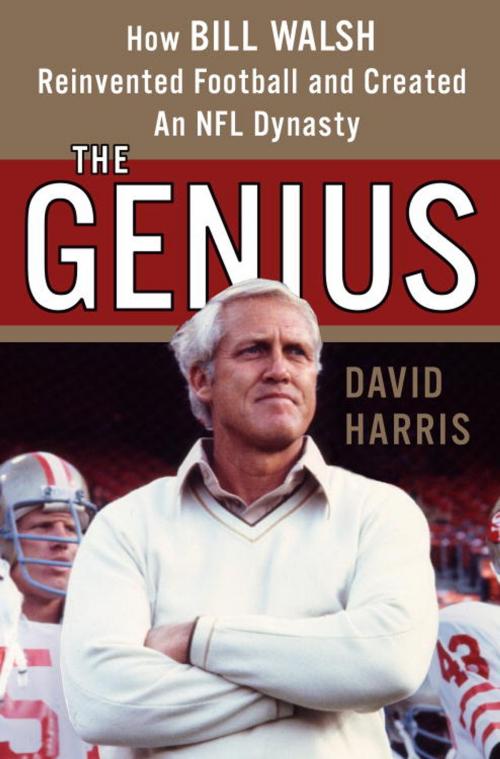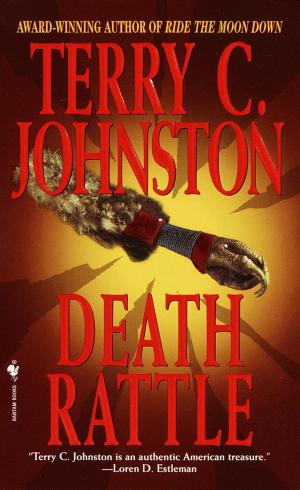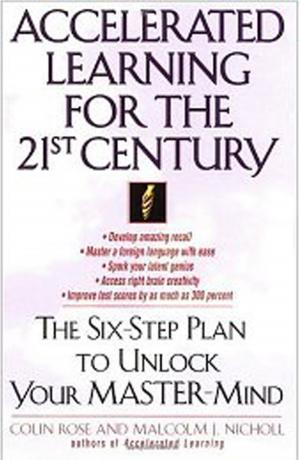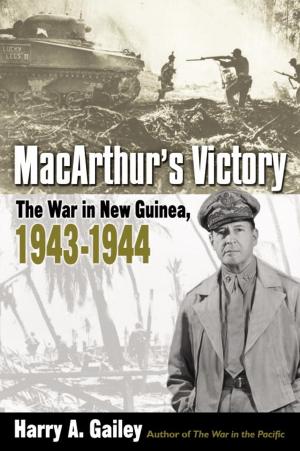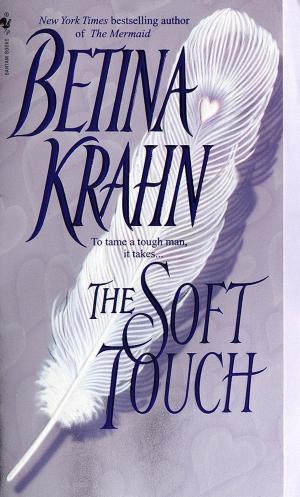The Genius
How Bill Walsh Reinvented Football and Created an NFL Dynasty
Nonfiction, Sports, Football, Biography & Memoir| Author: | David Harris | ISBN: | 9781588368102 |
| Publisher: | Random House Publishing Group | Publication: | September 2, 2008 |
| Imprint: | Random House | Language: | English |
| Author: | David Harris |
| ISBN: | 9781588368102 |
| Publisher: | Random House Publishing Group |
| Publication: | September 2, 2008 |
| Imprint: | Random House |
| Language: | English |
The Genius is the gripping and definitive account of Bill Walsh’s career and how he built a football dynasty from the rubble of a fallen franchise. David Harris gives a stellar account of the silver-haired sophisticate from humble working-class roots who was hired as head coach and general manager of the San Francisco Forty Niners in January 1979 and became the architect of what is arguably the greatest ten-year run in NFL history.
With unmatched access to players, fellow coaches, executives, the reporters who covered the Niners’ heyday, and Walsh himself, Harris recounts how Walsh, through tactical and organizational genius, created a football juggernaut. There were also the demons that pushed and haunted Walsh throughout his career: his clash with his former mentor, Paul Brown, who denied Walsh his first pro head-coaching job with the Cincinnati Bengals; Walsh’s struggle with self-doubt and criticism; the toll his single-minded devotion to football exacted on his family; and his complex relationship with the Forty Niners’ owner, Edward DeBartolo, Jr.
Walsh’s pre-Niners coaching odyssey was arduous–a longtime assistant coach, he developed his legendary and now-standard pass-oriented West Coast offense during stops at all levels of the game. Despite never having run a team’s draft before, Walsh, along with his right-hand man John McVay, quickly built the foundation for a dynasty by drafting or trading for a durable core of stars, including Joe Montana, Fred Dean, Hacksaw Reynolds, Dwight Clark, and Ronnie Lott. (Walsh would later restock the team with such players as Jerry Rice, Steve Young, and Charles Haley.) The key to Walsh’s genius perhaps lay in his keen understanding of his athletes’ psyches–he knew what brought out the best in each of them. But the scope of Walsh’s impact on the game extended well beyond the field and locker room. The Forty Niners’ life-skills counseling program, which Walsh spearheaded with the sports sociologist and activist Dr. Harry Edwards, and the internship program Walsh devised to bring minority coaches into the game have since been adopted by the NFL for all league franchises.
In the annals of sport, few individuals have had as great an impact on their game–or on its relevance to life outside the lines–as Bill Walsh. With knowledge, skill, passion, and a critical eye, David Harris reveals the brilliant man behind the coaching legend.
The vision Bill Walsh brought to all his pioneering efforts was a function of his perception of himself as someone who was far more than a football coach. He cherished his standing and participation in the larger world outside the NFL and nurtured them at every opportunity.
“Knowing Bill Walsh was kind of like the blind man describing an elephant,” one of the sportswriters who covered him observed. “We all knew just one little piece of him. But he had all these other areas we knew nothing about. He dealt with lots of people outside of football, outside of our scope entirely. He was able to deal with politicians, people who were intellects in other areas. They were impressed by him.”
–from The Genius
The Genius is the gripping and definitive account of Bill Walsh’s career and how he built a football dynasty from the rubble of a fallen franchise. David Harris gives a stellar account of the silver-haired sophisticate from humble working-class roots who was hired as head coach and general manager of the San Francisco Forty Niners in January 1979 and became the architect of what is arguably the greatest ten-year run in NFL history.
With unmatched access to players, fellow coaches, executives, the reporters who covered the Niners’ heyday, and Walsh himself, Harris recounts how Walsh, through tactical and organizational genius, created a football juggernaut. There were also the demons that pushed and haunted Walsh throughout his career: his clash with his former mentor, Paul Brown, who denied Walsh his first pro head-coaching job with the Cincinnati Bengals; Walsh’s struggle with self-doubt and criticism; the toll his single-minded devotion to football exacted on his family; and his complex relationship with the Forty Niners’ owner, Edward DeBartolo, Jr.
Walsh’s pre-Niners coaching odyssey was arduous–a longtime assistant coach, he developed his legendary and now-standard pass-oriented West Coast offense during stops at all levels of the game. Despite never having run a team’s draft before, Walsh, along with his right-hand man John McVay, quickly built the foundation for a dynasty by drafting or trading for a durable core of stars, including Joe Montana, Fred Dean, Hacksaw Reynolds, Dwight Clark, and Ronnie Lott. (Walsh would later restock the team with such players as Jerry Rice, Steve Young, and Charles Haley.) The key to Walsh’s genius perhaps lay in his keen understanding of his athletes’ psyches–he knew what brought out the best in each of them. But the scope of Walsh’s impact on the game extended well beyond the field and locker room. The Forty Niners’ life-skills counseling program, which Walsh spearheaded with the sports sociologist and activist Dr. Harry Edwards, and the internship program Walsh devised to bring minority coaches into the game have since been adopted by the NFL for all league franchises.
In the annals of sport, few individuals have had as great an impact on their game–or on its relevance to life outside the lines–as Bill Walsh. With knowledge, skill, passion, and a critical eye, David Harris reveals the brilliant man behind the coaching legend.
The vision Bill Walsh brought to all his pioneering efforts was a function of his perception of himself as someone who was far more than a football coach. He cherished his standing and participation in the larger world outside the NFL and nurtured them at every opportunity.
“Knowing Bill Walsh was kind of like the blind man describing an elephant,” one of the sportswriters who covered him observed. “We all knew just one little piece of him. But he had all these other areas we knew nothing about. He dealt with lots of people outside of football, outside of our scope entirely. He was able to deal with politicians, people who were intellects in other areas. They were impressed by him.”
–from The Genius
